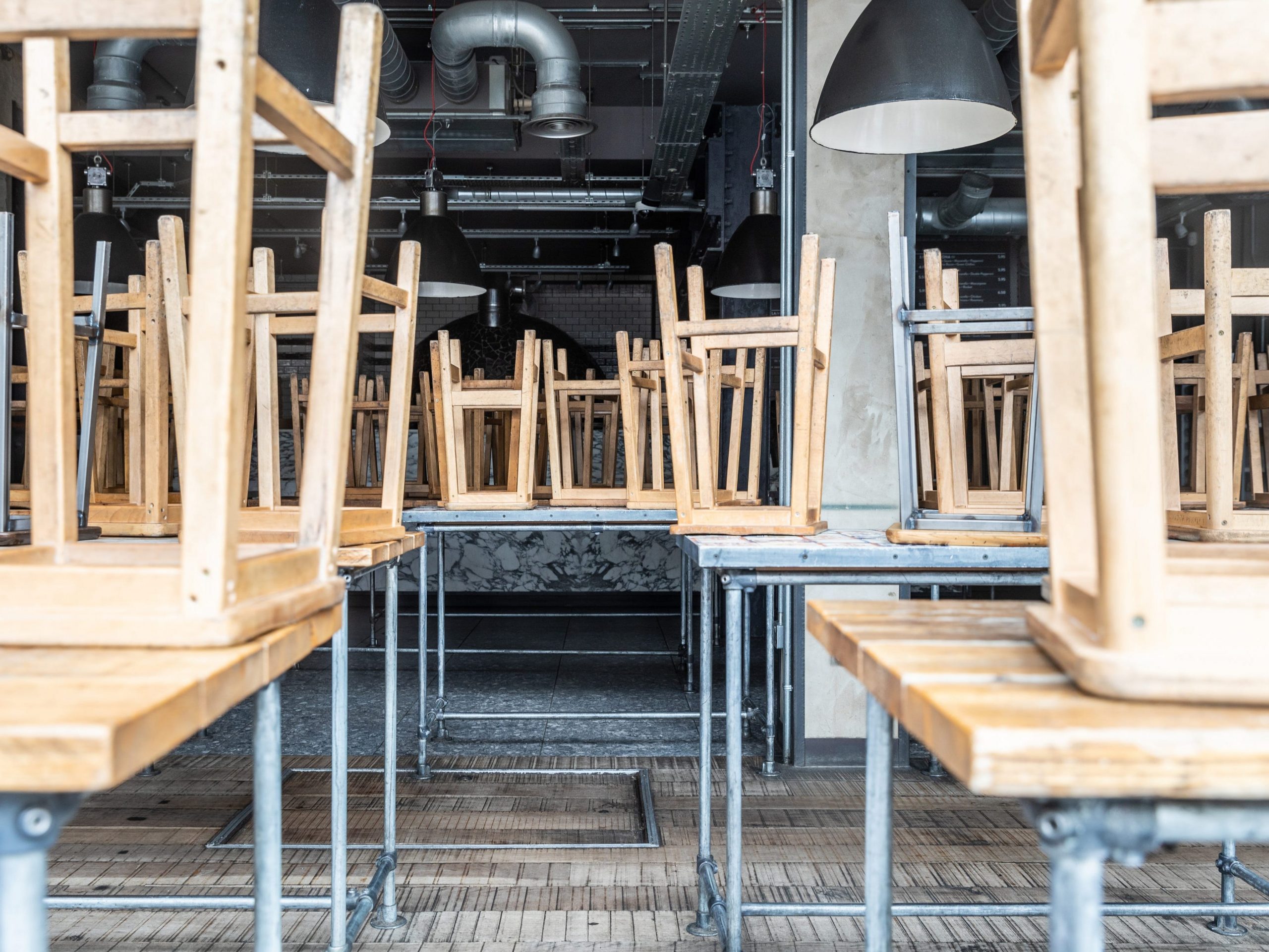
William Perugini/Getty Images
- Three groups of restaurants are taking their insurer to court over lack of cover for pandemic losses.
- The restaurants claimed that their coverage should have been triggered when the pandemic started.
- A judge has ruled that the restaurants should be able to move forward with their legal action.
- See more stories on Insider's business page.
A federal district court judge has ruled that three groups of restaurants operating in four US states should be able to move forward with legal action, which claims that business interruption insurance should cover their pandemic losses.
The restaurants' revenues were hit as states introduced COVID-19 safety protocols including social-distancing requirements, restaurant capacity limits, and even the temporary suspension of both indoor and outdoor dining.
Restaurants being run by Valley Lodge in Illinois, Rising Dough in Illinois, and Big Onion Tavern Group in Wisconsin, Minnesota, and Tennessee all took action against Wisconsin-based insurer Society Insurance. The cases were initially filed separately before being combined into a multi-district bellwether case.
The insurance company tried to dismiss the cases – but the US District Court for the Northern District of Illinois turned this down, meaning that the restaurants will be able to take the issue to court.
"The case serves as an accountability mechanism," Shannon McNulty of Clifford Law Offices, who is co-lead counsel in the case, told Insider.
The restaurants alleged that under their insurance policy with Society Insurance, they had coverage that should have been triggered last March when the pandemic started.
Society Insurance, in response, said that this pandemic coverage isn't included in the language of the policy.
Society Insurance had told the restaurants in an email in March 2020 that "a quarantine of any size ... would likely not trigger business income or extra expense coverages under our policies." It also said "a widespread governmental imposed shutdown due to COVID-19 would likely not trigger the additional coverage of civil authority."
The insurance company added that COVID-19 would be "unlikely" to trigger contamination coverage because it isn't a foodborne illness, and that exposure that their food products had to COVID-19 would not count as a spoilage-covered cause of loss.
In a 31-page ruling viewed by Insider, the court found that the restaurants' insurance policy "does not contain a specific exclusion of coverage for losses due to a virus or pandemic." The restaurants said that is a standard exclusion in the insurance industry.
"The fundamental questions at stake in this litigation are how properly to classify the interruption that has happened here, and whether this particular interruption is covered under the policy," Edmond Chang, the judge leading the ruling, wrote.
The court said that "exclusions are narrowly or strictly construed against the insurer if their effect is uncertain."
"The decision is highly significant for businesses, particularly here in the Midwest, who have suffered financial losses due to the pandemic and paid insurance premiums to protect against those losses," McNulty said.
"The court correctly found no coverage under the civil authority, contamination, and sue and labor provisions of Society's policy," Society Insurance told Insider. "But Society is disappointed that the court allowed the claims for business-interruption coverage to survive early motions to dismiss and for summary judgment."
"This is an early, preliminary ruling, and does not resolve the merits," it said. "Society will continue to vigorously defend its interests in the litigation."
The court classed the multi-district case as a "bellwether" case, but it's part of a much bigger wave of coronavirus-related litigation covering everything from individual businesses to industries, lawmakers, and even entire governments.
Strip clubs in New York City have sued Gov. Andrew Cuomo for keeping them closed during the pandemic and Texas Attorney General Ken Paxton threatened to sue the city of Austin if it didn't lift its mask mandate. In addition, a Dutch court ordered the government to scrap the country's COVID-19 curfew.